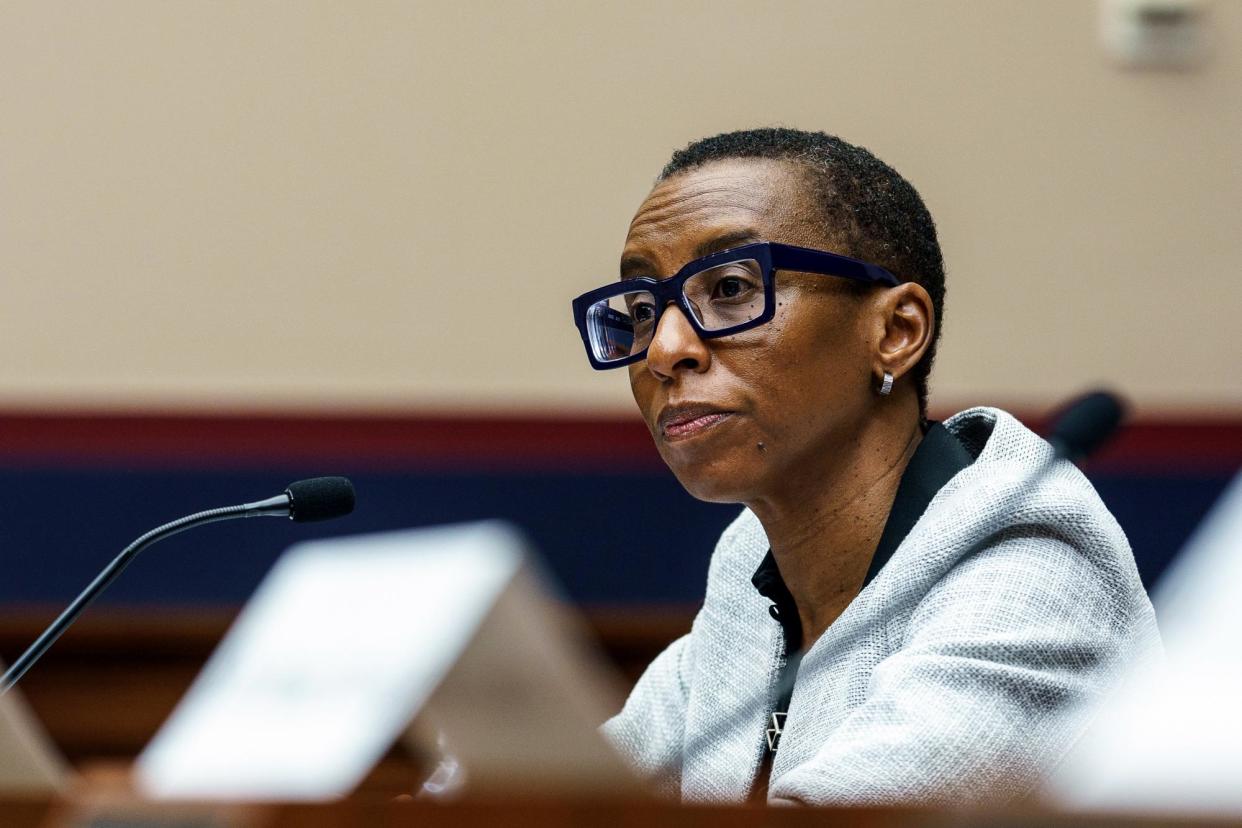Harvard president resigns amid claims of plagiarism and antisemitism backlash

- Oops!Something went wrong.Please try again later.
Claudine Gay, the president of Harvard University, has resigned amid pressure over her response to questions about antisemitism at US colleges and allegations that she has plagiarized some of her academic work.
In her resignation letter, Gay announced that she will be returning to her position as a member of the faculty.
“As I now return to the faculty, and to the scholarship and teaching that are the lifeblood of what we do, I pledge to continue working alongside you to build the community we all deserve,” she wrote.
Gay’s resignation comes just six months after her presidency began, making hers the shortest tenure in Harvard’s history. The daughter of Haitian immigrants, Gay was appointed the first Black person and the second woman to the lead the Ivy League institution.
On 5 December, Gay, along with the presidents of MIT and the University of Pennsylvania testified before Congress about their campuses’ handling of accusations of antisemitism, following the beginning of the Israel-Gaza war. All three presidents offered legalistic answers. Following their testimonies, more than 70 US lawmakers signed a letter in response demanding the presidents be removed. The University of Pennsylvania’s president resigned on 9 December. Gay apologized later for her answers.
The campaign against Gay’s presidency was largely promoted by conservative activists, including those who oppose diversity, equity and inclusion initiatives. They argued that Gay was hired not because of her decades of academic work and recognition, but rather because she is Black. New plagiarism allegations surfaced on Monday in a conservative online journal that has led the campaign against Gay. Following the initial complaints, Gay defended her work. “I stand by the integrity of my scholarship,” she wrote. Gay later added additional quotes and citations to the articles.
Further commenting on the allegations, Gay wrote in her resignation letter, “it has been distressing to have doubt cast on my commitments to confronting hate and to upholding scholarly rigor – two bedrock values that are fundamental to who I am – and frightening to be subjected to personal attacks and threats fueled by racial animus”.
Despite the plagiarism accusations, Gay won a statement of confidence from Harvard Corporation, the school’s governing board. She maintained support from colleagues, including hundreds of professors signing a petition opposing calls for her to back down, and advocates who saw the attacks on her presidency as threatening free speech.
Gay’s resignation is effective 2 January. “When my brief presidency is remembered, I hope it will be seen as a moment of reawakening to the importance of striving to find our common humanity – and of not allowing rancor and vituperation to undermine the vital process of education,” she wrote in her letter. “I trust we will all find ways, in this time of intense challenge and controversy, to recommit ourselves to the excellence, the openness and the independence that are crucial to what our university stands for – and to our capacity to serve the world.”

